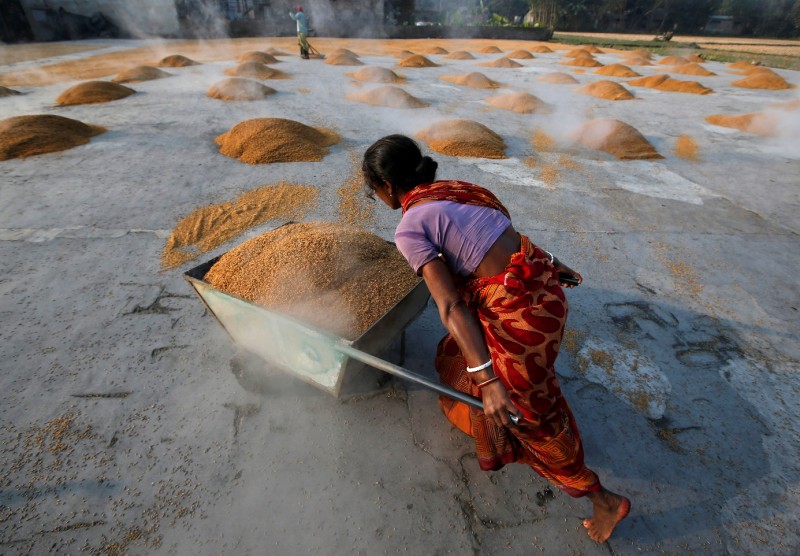 News
News
India's rice export ban makes world markets prepare for similar actions from other countries to avoid potential rice shortages in the country as sellers try to fill the 10 million tonnes gap caused by New Delhi left, raising concerns about already high global food inflation.
India's latest restrictions are almost identical to those it imposed in 2007 and 2008, which has caused a domino effect as many other countries have been forced to restrict exports, analysts say. imports to protect domestic consumers.
 |
This time around, the impact on supply and prices could be even more far-reaching, as India now accounts for more than 40% of global rice trade compared with about 22% 15 years ago, putting pressure on countries rice exports like Thailand.
India is much more important to the rice trade now than it was in 2007 and 2008 India's ban then forced other exporters to implement similar restrictions under .
Even now, they have little choice but to react to the markets. The impact on the price of the world's most consumed staple has been swift, reaching a 15-year high, after India surprised buyers last month by imposing a rice sales ban. non-basmati white is widely consumed.
New Delhi has limited supplies of lower-quality broken rice in 2022. Analysts and traders say the limited supply risks increasing rice prices and global food inflation, affecting people poor consumption in Asia and Africa. Food importers are struggling with tight supplies due to erratic weather and disruptions to shipping through the Black Sea.
Nitin Gupta, Senior Vice President of Olam Agri India, one of the world's leading rice exporters, said: "Thailand, Vietnam and other exporting countries are poised to step up the game, all in all, " said to close the gap stemming from India's shortfall.
However, there is still a limitation in the expansion of export possibilities. This limitation could set the stage for a price increase, reminiscent of the remarkable bull run we saw in 2007-2008.
In 2008, rice prices hit a record high above $1,000/ton after India, Vietnam, Bangladesh, Egypt, Brazil and other small producers restricted exports.
This time, rice exporters will not be able to increase exports by more than 3 million tons per year as they try to meet domestic demand amid limited supply. Thailand, Vietnam and Pakistan, the second, third and fourth largest exporters in the world, respectively, said they were keen to increase sales as demand for their crops increased following the order. Indian ban.
Both Thailand and Vietnam have emphasized that they will ensure that domestic consumers are not harmed by increased exports.
The Rice Exporters Association of Pakistan (REAP) says the country is recovering from last year's devastating floods, possibly exporting 4.5 million to 5.0 million tons from 3.6 million tons last year. Present. However, the country is unlikely to allow unrestricted exports amid double-digit inflation.
Global prices have risen about 20% since India's ban. According to traders at international trading companies, an additional 15% increase could cause restrictions in Thailand and Vietnam.
The question is not whether they will restrict exports, but how much and when they will implement them. Rice prices in Thailand and Vietnam soared to 15-year highs as buyers rushed to buy consignments to offset a drop in Indian exports.
Rice is the staple food of more than 3 billion people and nearly 90% of water-intensive crops are produced in Asia, where the arrival of arid El Niño weather threatens crops in major producing countries. After below-normal rainfall in June and July, Thailand has advised farmers to limit the area under which the second crop is planted.
In India, the erratic distribution of monsoon rainfall has led to flooding in some northern rice-growing states, even as some eastern states lack the rainfall to initiate planting.
Good monsoon rainfall is needed for normal production, which will allow New Delhi to reverse the rice export ban, said the Rice Exporters Association of India. Only Indian supply can restore equilibrium in the global rice market.
It will have to see how long India's restrictions stay in effect, analysts at the International Grains Council (IGC) in London said. The longer the ban is in effect, the harder it is for other exporters to make up the shortfall.